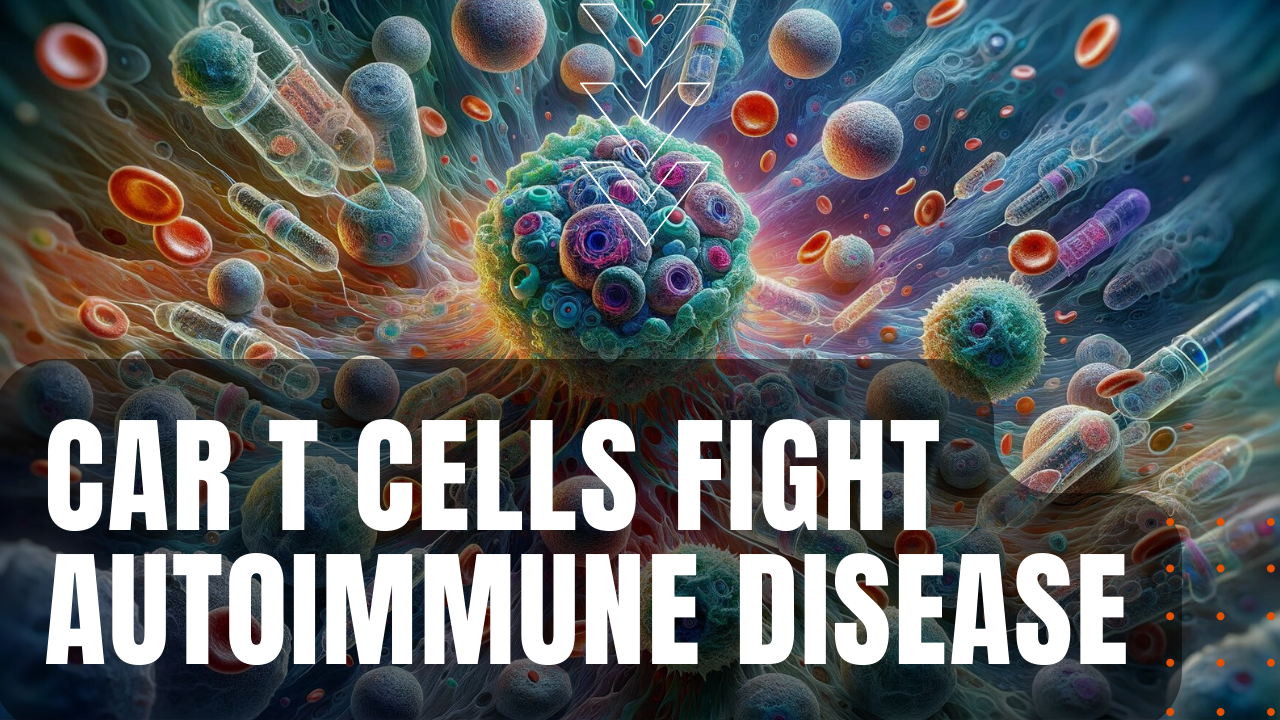CAR T Cells Fight Autoimmune Disease

Thanks to the discovery of gene editing technologies such as CRISPR, scientists have made bold advances employing Car T cell therapies in the fight against many forms of cancers, while an additional army of researchers have spent years employing Car T Cell therapies to combat and even reverse the crippling effects of autoimmune diseases, such as Type 1 diabetes, lupus and multiple sclerosis, conditions which occur when immune cells wrongly attack the body’s own healthy tissues. For example, in multiple sclerosis, the body attacks the myelin sheath that insulates nerves, while in coeliac (co lee ic) disease, a delinquent gluten prompts the immune system to attack the lining of the intestine.
Chimeric Antigen Receptor
Short for Chimeric Antigen Receptor, CAR T cell Therapies use the patient’s own immune system to create both a peripheral and central tolerance to autoimmune diseases, through the elimination or deactivation of wayward cells, which in turn become regulatory T cells intent on suppressing unwanted immune responses. To perform CAR T Cell Therapy, blood is drawn from a patient, before T cells are isolated in a lab. The T cells then undergo genetic reprogramming, which allows CAR T cells to recognize specific antigen protein markers on the surface of certain cells. The genetically-altered T cells are then multiplied and packaged for re-infusion into the donor patient, which in turn allows the altered T cells to patrol a patient’s blood stream in search of wayward cells such as delinquent B cells.
Positive Results
Presented on December 9th, 2023, at the American Society of Hemotology meeting in San Diego, researchers from Friedrich Alexander University in Germany presented results on fifteen patients with a mean disease duration of eight years—eight suffering from lupus, four suffering from systemic sclerosis and three suffering from idiopathic inflammatory myositis, the later causing muscle inflammation and generalized weakness. In all patients, symptoms improved dramatically up to twelve months after treatment, while all stayed in drug-free remission even after they began producing new B cells, suggesting a profound reset of each patient’s immune system. “The results are mind blowing, boggling, outstanding,” says Lawrence Steinman of Stanford University, who many consider the father of antigen-specific therapies, making breakthroughs in Autoimmune CAR T Cell Therapies, a promising new era in the fight against disease.
